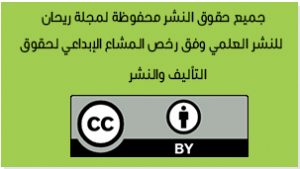Analytical Inductive Study
حــــكــــم التــــقــــلـيــــد والاتِّــــــبــــــــاع
دراسة استقرائية تحليلية
This research is summarized in explaining the reality of imitation and that it entails what is considered despicable and what is said to be not reprehended, the difference between imitation and following is vividly explained, furthermore, the obligatory mandate on individuals that are endowed with knowledge and have the capacity to academically investigate and cultivate rulings from the point of Islamic legal evidences and jurisprudential stance through striving on various themes, and others who lack that intellectual authority must look up to traditional imitative proofs so that Islamic legal advice becomes clear to him and be free from the reprehensible imitation. This research also concludes that imitation is like eating dead meat, and that it is not resorted to except in the most urgent cases, and that it is possible to get out of pure imitation in the jurisprudential issues in which scholars have ruled and a dispute occurred between them, for the beholder to consider them and consider their evidence with contemplation until he finds himself comfortable with one of these sayings for the strength of Its evidence or clarity, so one of them is more likely, so he follows the evidence and not meets it.
In this research, there is an explanation of the difference between glorifying the scholars and their appreciation and knowing their status that God has endowed them with in terms of knowledge, piety, piety and advice to people, and between their sanctification and fanaticism for them and taking their words without looking at their evidence and knowing the most correct and preferred ones. For him on that, he has made it clear that he resorts to imitation out of necessity, such as eating dead carcasses
It also includes a statement that scholars such as the four imams (may God have mercy on them) prohibited and restrained from blind follow and advised their students not to exclusively imitate them simply because they of err and therefore liable to committing errors and that any intellectual advisory from them that contradicts the Holy Qur’an and the true teachings of the Prophet S.A.W must be kept at bay. This form of criticism is something transparent in their books together with restricting students from blind following scholas.
Keywords: Imitation, Following, Briefing, Concise Follow in Succession, Necklace, Cohesion, Intellectual Strive, Khouaiz Mendad.
Dr. Masoud Hamed Basheer BESHIR, Lecturer at the Faculty of Sharia Sciences – Souque Al-Jomua Department of Shariea, University of Tripoli – LIBYA
 مجلة ريحان للنشر العلمي مجلة علمية، محكمة، شهرية، مفتوحة الوصول
مجلة ريحان للنشر العلمي مجلة علمية، محكمة، شهرية، مفتوحة الوصول
